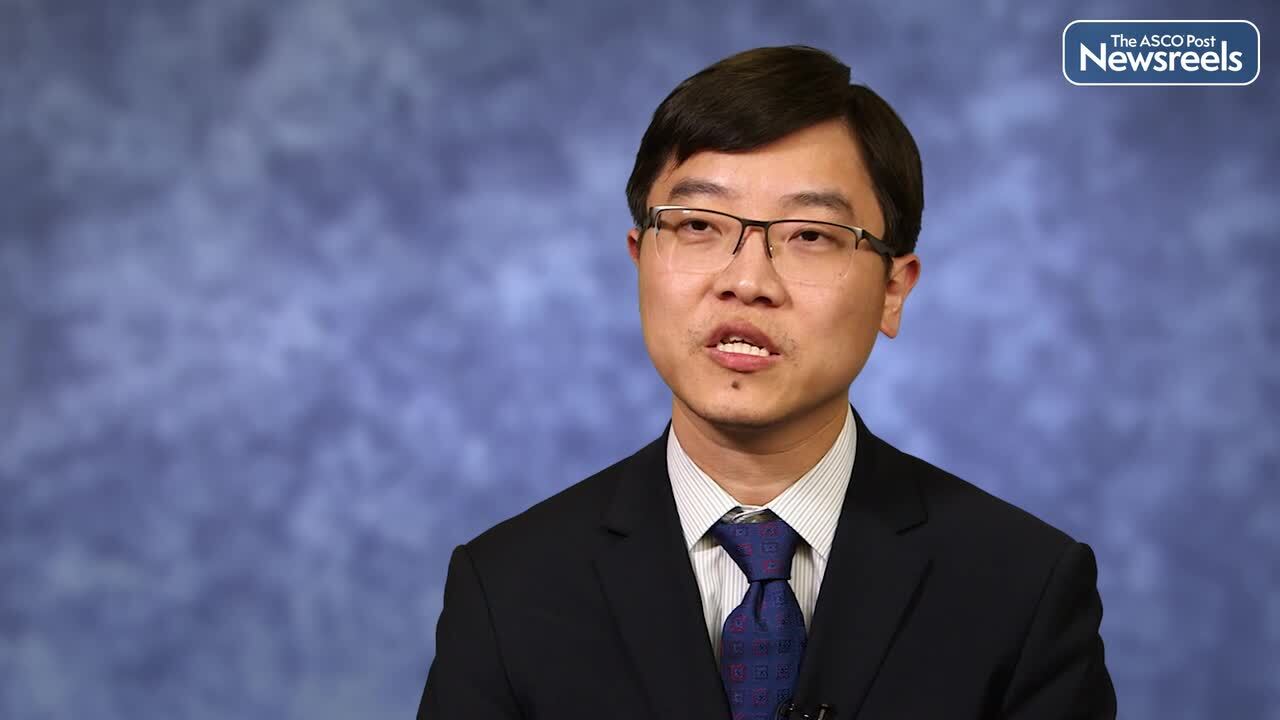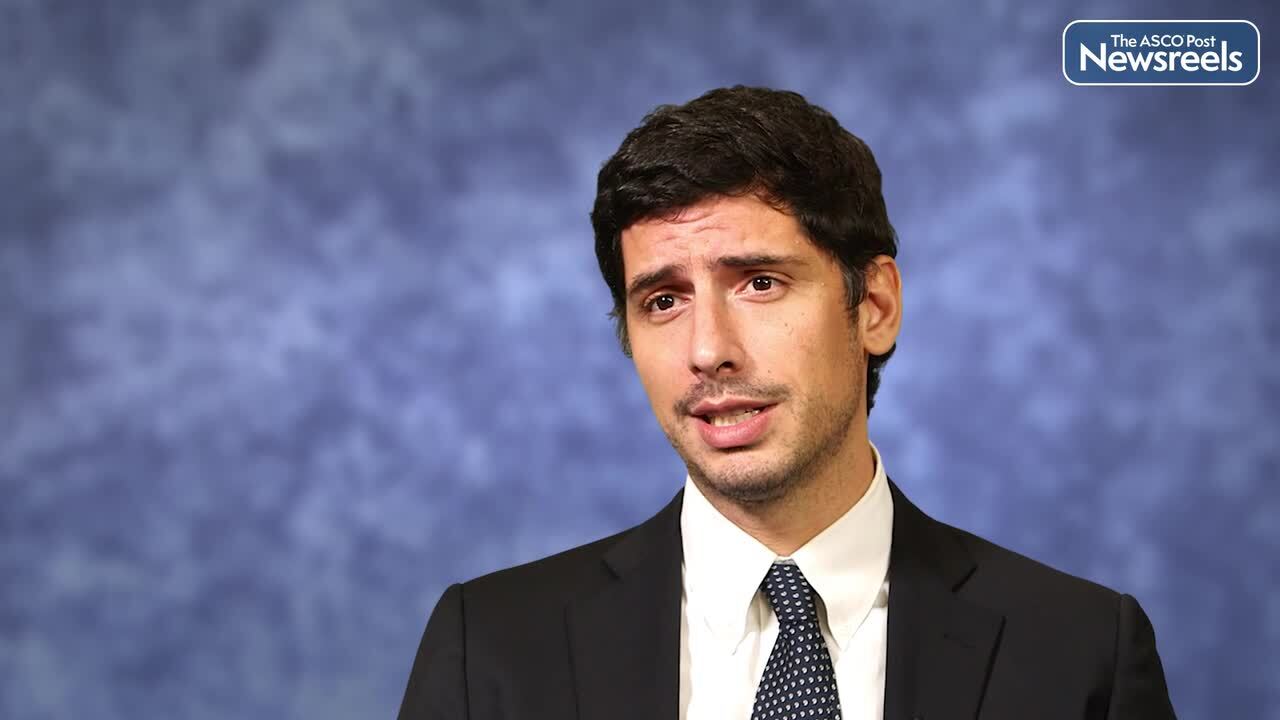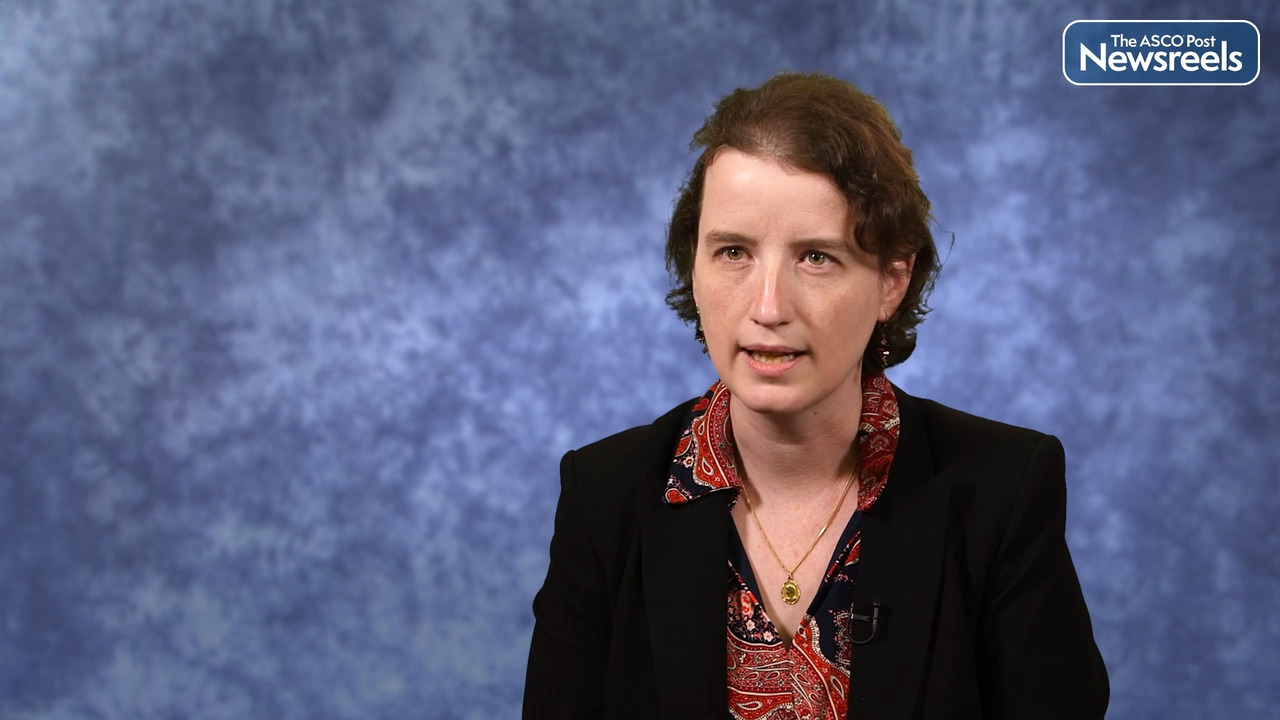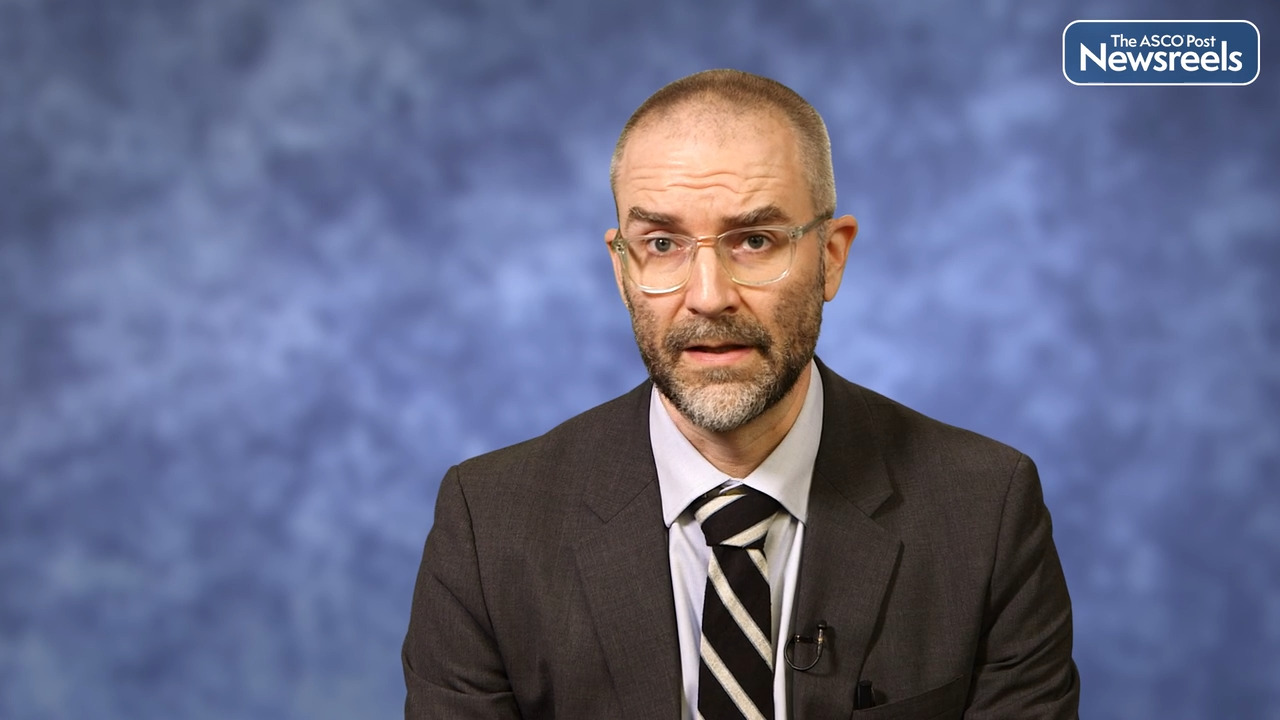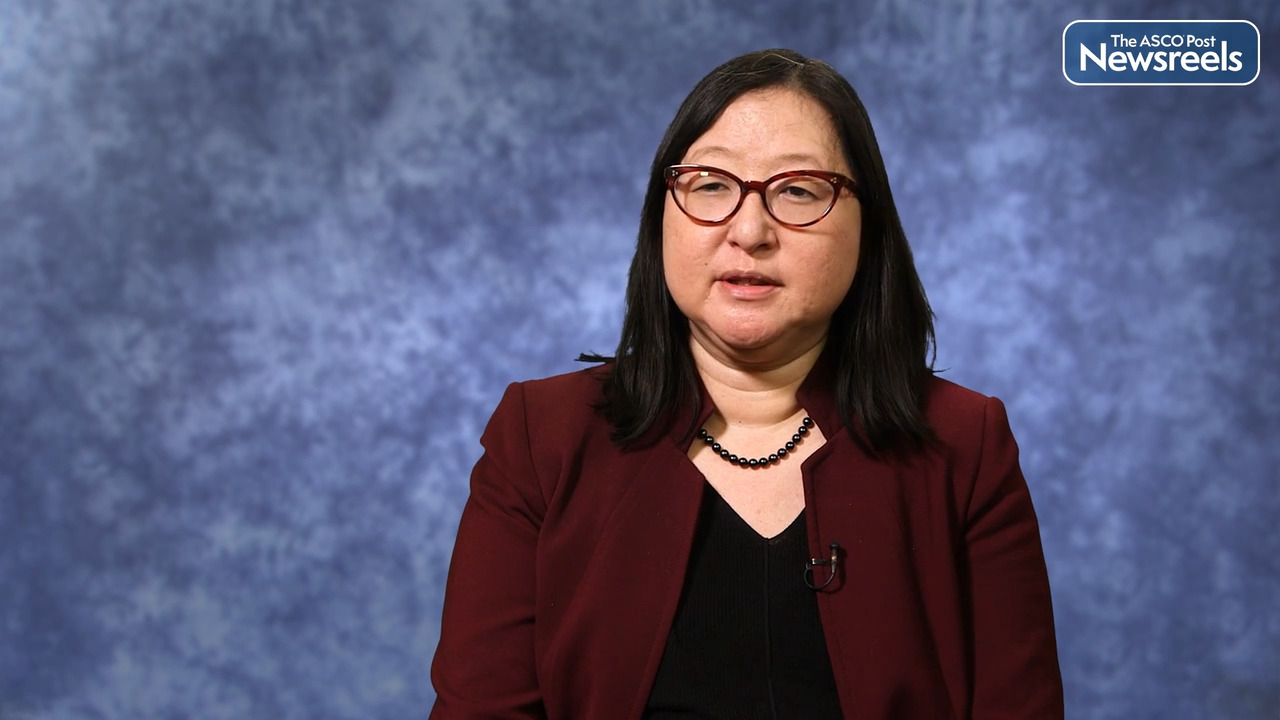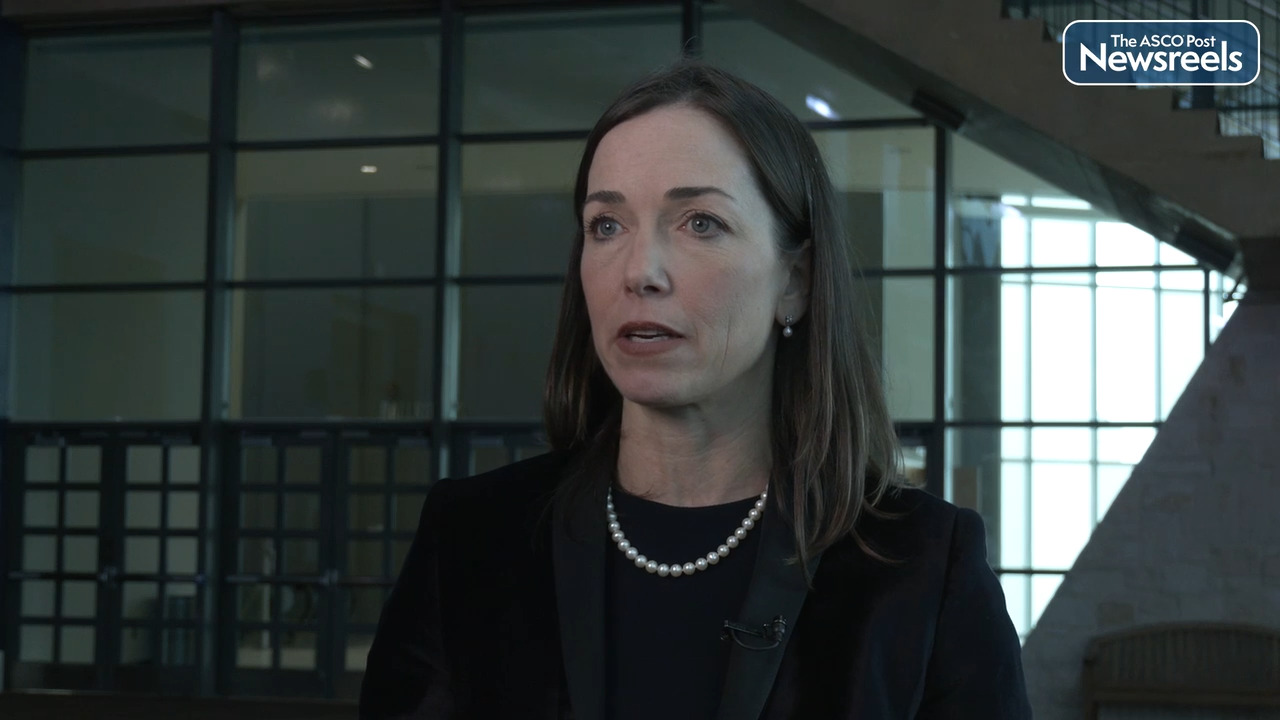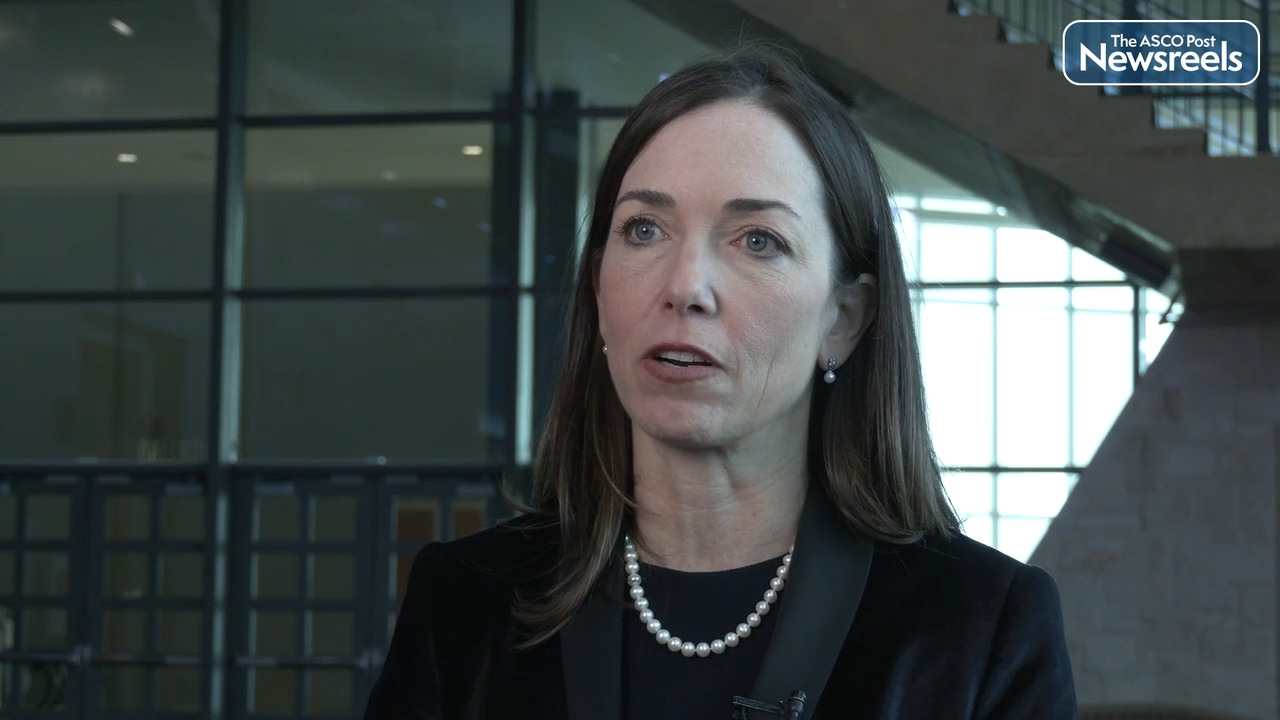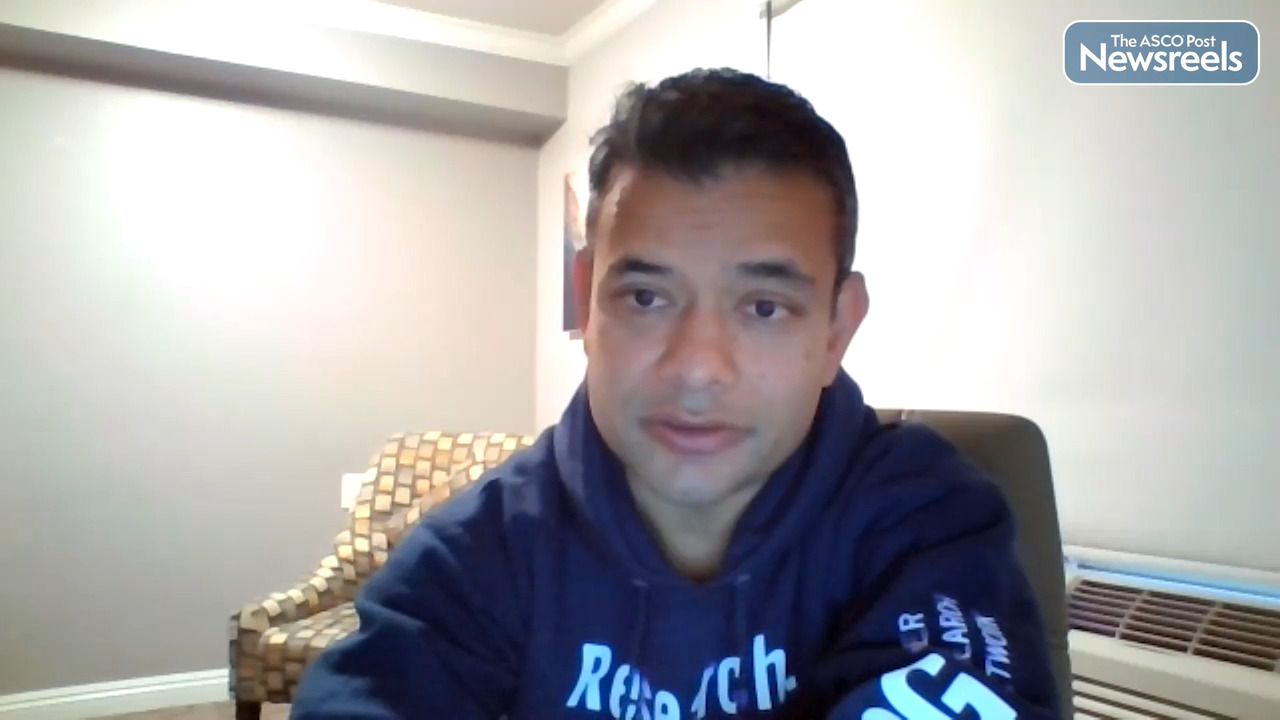Combination of Botensilimab and Balstilimab Shows Activity in Patients With Metastatic Microsatellite-Stable Colorectal Cancer
A combination of the next-generation immunotherapies botensilimab and balstilimab showed clinical activity in treating patients with refractory metastatic microsatellite-stable (MSS) colorectal cancer, according to new findings presented by El-Khoueiry et al at the 2023 ASCO Gastrointestinal...
Tremelimumab-actl in Combination With Durvalumab for Unresectable Hepatocellular Carcinoma
On October 21, 2022, tremelimu-mab-actl was approved by the U.S. Food and Drug Administration (FDA) for use in combination with durvalumab in the treatment of unresectable hepatocellular carcinoma.1 Supporting Efficacy Data Approval was based on a comparison of overall survival in the...
Neoadjuvant Pembrolizumab in Localized MSI-H/dMMR Solid Tumors
In a single-center phase II trial reported in the Journal of Clinical Oncology, Ludford et al found that neoadjuvant pembrolizumab produced a high pathologic complete response rate and radiographic objective response rate in patients with localized microsatellite instability–high/mismatch...
Blinatumomab Improves Survival in MRD-Negative, B-Cell ALL
The standard of care could be changing for adults with newly diagnosed BCR-ABL–negative B-lineage acute lymphoblastic leukemia (ALL) who achieve measurable residual disease (MRD) negativity after induction chemotherapy. In the phase III E1910 trial by the ECOG-ACRIN Cancer Research Group, an...
Neoadjuvant Immunotherapy in Patients With Localized dMMR Colorectal Cancer
Investigators discovered that PD-1 inhibition prior to surgery may be effective for patients with localized mismatch repair–deficient or microsatellite instability–high (dMMR/MSI-H) colorectal cancer, according to a study published by Xiao et al in JNCCN–Journal of the National Comprehensive Cancer ...
Novel Therapy Afamitresgene Autoleucel Shows Early Potential for Antitumor Activity
The adoptive T-cell receptor therapy afamitresgene autoleucel—which targets the MAGE-A4 cancer antigen—achieved clinically significant results for patients with multiple solid tumor types in a phase I clinical trial, according to a novel study published by Hong et al in Nature Medicine. Initial...
First-Line Atezolizumab Plus Bevacizumab in Metastatic Nonsquamous NSCLC With High Tumor Mutation Burden
In a Spanish phase II trial reported in JAMA Oncology, Mariano Provencio, MD, PhD, and colleagues found that the combination of atezolizumab and bevacizumab was active in the first-line treatment of patients with metastatic nonsquamous non–small cell lung cancer (NSCLC) with high tumor mutation...
New AI-Based Biomarker May Help Predict Immunotherapy Response for Patients With NSCLC
Researchers have discovered a new artificial intelligence (AI)-derived biomarker that uses routine imaging scans to help predict which patients with non–small cell lung cancer (NSCLC) will respond to immunotherapy, according to a novel study published by Alilou et al in Science Advances. The...
KEYNOTE-394: Pembrolizumab as Second-Line Therapy in Asian Patients With Advanced HCC
As reported in the Journal of Clinical Oncology by Qin et al, the phase III KEYNOTE-394 trial showed overall and progression-free survival benefits with pembrolizumab vs placebo in previously treated Asian patients with advanced hepatocellular carcinoma (HCC). Study Details The double-blind trial...
Updated Data From a Phase II Trial of Triplet Therapy in HPV-Positive Cancers
Expanded interim data from a phase II clinical trial investigating PDS0101-based triple combination therapy in advanced human papillomavirus (HPV)-positive cancers were recently announced. The triple combination of PDS0101—a novel T-cell HPV-specific immunotherapy—with the tumor-targeting IL-12...
Triple Immunotherapy Combination Studied Preclinically for Pancreatic Cancer
Researchers at The University of Texas MD Anderson Cancer Center have discovered a novel immunotherapy combination, targeting checkpoints in both T cells and myeloid suppressor cells, that successfully reprogrammed the tumor immune microenvironment and significantly improved antitumor responses in...
Preexisting Autoimmune Disease and Risk for Cardiovascular Events in Patients Receiving Immune Checkpoint Inhibitor Therapy for Cancer
In a single academic hospital network retrospective case-control study reported in JACC: CardioOncology, Lee et al found that patients with vs without preexisting autoimmune disease who received immune checkpoint inhibitor therapy for cancer had significantly increased risk of cardiovascular...
Expert Point of View: Rimas V. Lukas, MD
Rimas V. Lukas, MD, a neuro-oncologist at Northwestern Medicine Lou and Jean Malnati Brain Tumor Institute, Chicago, praised the investigators’ willingness to explore relatively new areas of cancer research. “This is an interesting study by a strong group delving further into the nervous...
Study Finds Microbiome-Derived Vaccine Plus Nivolumab and Bevacizumab May Improve Outcomes in Recurrent Glioblastoma
A microbiome-derived therapeutic vaccine (EO2401) has demonstrated immune responses and anticancer activity in combination with nivolumab and bevacizumab in patients with recurrent glioblastoma, one of the most difficult-to-treat cancers, according to data presented at the 2022 Society for...
From the Clinic to the Lab: Overcoming Resistance to Immune Checkpoint Therapy
As a result of breakthroughs in immune checkpoint inhibitors over the past decade, immunotherapy has joined surgery, radiation therapy, and chemotherapy as one of the pillars of cancer treatment. However, nearly half of patients still do not benefit from immune checkpoint blockade. During the 2022...
Expert Point of View: Ryan J. Sullivan, MD
Ryan J. Sullivan, MD, Associate Professor of Medicine at Harvard Medical School, and Associate Professor of Hematology/Oncology at Massachusetts General Hospital, Boston, told The ASCO Post that tumor-infiltrating lymphocyte (TIL) cell therapy is likely to become a standard practice in the field....
Study Finds Lifileucel Active in Advanced Melanoma After Disease Progression on Immune Checkpoint Inhibitors
Cell therapy with tumor-infiltrating lymphocytes (TIL) may address an important unmet need for patients with difficult-to-treat melanoma after disease progression on immune checkpoint inhibitors, according to data presented during the 2022 Society for Immunotherapy of Cancer (SITC) Annual ...
Expert Point of View: Neelima Vidula, MD
Commenting on the DESTINY-Breast03 presentation at the 2022 San Antonio Breast Cancer Symposium, Neelima Vidula, MD, a medical oncologist at Mass General Cancer Center, said: “The results highlight the important survival differences of T-DXd [fam-trastuzumab deruxtecan-nxki] compared to T-DM1...
T-DXd Confirmed as Preferred Second-Line Therapy for Metastatic HER2-Positive Breast Cancer
The antibody-drug conjugate fam-trastuzumab deruxtecan-nxki (T-DXd) proved to be superior to the antibody-drug conjugate ado-trastuzumab emtansine (T-DM1), significantly improving progression-free survival and overall survival, in women with unresectable or metastatic HER2-positive breast cancer as ...
In Stage IV NSCLC, Anti-TIGIT Antibody Boosts Immunotherapy Benefit
In the phase II ARC-7 study, when domvanalimab, a novel antibody that blocks T-cell immunoglobulin and ITIM domain (TIGIT), was added to immunotherapy for patients with stage IV non–small cell lung cancer (NSCLC), the combination resulted in improved response rates and progression-free survival...
Cardiovascular Events Before and After Initiation of Immune Checkpoint Inhibitor Therapy for Cancer: Agreement Between ICD-Coded and -Adjudicated Events
In a study reported in JACC: CardioOncology, Kondapalli et al found that cardiovascular events common in the general population were observed both prior to and after initiation of immune checkpoint inhibitor therapy for cancer; myocarditis was more common posttreatment, but infrequent. Agreement...
Nivolumab Plus Cabozantinib With or Without Ipilimumab in Advanced Hepatocellular Carcinoma
As reported in the Journal of Clinical Oncology by Thomas Yau, MD, and colleagues, findings in a cohort of the phase I/II CheckMate 040 trial indicated the activity of nivolumab/cabozantinib with or without ipilimumab in patients with advanced hepatocellular carcinoma. Study Details In the...
2021 JADPRO Article of the Year Award Spotlights Management of Adverse Events in Immunotherapy
A team of advanced practice providers in the Department of Hematology/Oncology at Fox Chase Cancer Center have received the 2021 Article of the Year Award from the Journal of the Advanced Practitioner in Oncology (JADPRO). This award is given to one article each year that demonstrates an...
Risk of Adverse Side Effects From Cancer Immunotherapy May Be Higher in Patients With Certain Inherited Genetic Variations
Even as they’ve revolutionized cancer treatment, immune checkpoint inhibitors have been shown to produce a range of adverse immune-related side effects. Researchers have now identified inherited genetic variations that may place patients at high risk for complications when undergoing treatment with ...
First-Line Nivolumab/Ipilimumab vs EXTREME Regimen in Recurrent or Metastatic Head and Neck Cancer
The final results of the phase III CheckMate 651 trial showed no significant overall survival benefit with first-line nivolumab/ipilimumab vs the EXTREME regimen (cetuximab plus cisplatin or carboplatin plus fluorouracil for up to six cycles, followed by cetuximab maintenance) in recurrent or...
TIL Therapy vs Ipilimumab in Advanced Melanoma
In a Dutch-Danish phase III trial reported in The New England Journal of Medicine, Rohaan et al found that tumor-infiltrating lymphocyte (TIL) therapy prolonged progression-free survival vs ipilimumab in patients with advanced melanoma. Study Details The open-label trial included 168 patients...
Blinatumomab Further Improves Survival Among Patients With B-Lineage ALL and a Good Prognosis
The bispecific T-cell engager molecule blinatumomab was found to improve overall survival for patients with no measurable residual disease (MRD) after initial treatment for B-lineage acute lymphoblastic leukemia (ALL), according to the phase III ECOG-ACRIN E1910 trial presented by Litzow et al at...
Pilot Study Investigates Axicabtagene Ciloleucel in Primary and Secondary CNS Lymphoma
The chimeric antigen receptor (CAR) T-cell therapy axicabtagene ciloleucel was deemed safe and showed encouraging signs of efficacy in a small pilot trial involving patients with lymphoma of the brain and/or spinal cord, according to findings presented by Caron A. Jacobson, MD, MMSc, and colleagues ...
Jiye Liu, PhD, on Multiple Myeloma: Genome-Wide CRISPR-Cas9 Screening Identifies KDM6A as a Modulator of Daratumumab Sensitivity
Jiye Liu, PhD, of Dana-Farber Cancer Institute, discusses study findings that demonstrate KDM6A regulates CD38 and CD48 expression in multiple myeloma. Dr. Liu’s team validated combination treatment with an FDA-approved EZH2 inhibitor plus daratumumab, which can overcome daratumumab resistance in preclinical multiple myeloma models, providing the rationale for combination clinical trials to improve patient outcome (Abstract 148).
Francesco Maura, MD, on Genomic Determinants of Resistance in Newly Diagnosed Multiple Myeloma Treated With Targeted Immunotherapy
Francesco Maura, MD, of the University of Miami, Sylvester Comprehensive Cancer Center, discusses his team’s findings in which they defined a comprehensive catalogue of genomic determinants of response to DKRd (carfilzomib, lenalidomide, dexamethasone) in newly diagnosed multiple myeloma. The researchers have identified a number of new genomic alterations that explain resistance to the agents currently used in combination regimens (Abstract 470).
Eileen M. Boyle, MD, PhD, on Multiple Myeloma: Sustained MRD Negativity in Newly Diagnosed Disease Treated with Immunotherapy Regimens
Eileen M. Boyle, MD, PhD, of the Perlmutter Cancer Center, NYU Langone Health, discusses Fc-mediated antibody effector function, inflammation resolution, and oligoclonality and their role in predicting sustained measurable residual disease negativity in patients with newly diagnosed multiple myeloma who were treated with immunotherapy regimens. For the first time, an analysis of T-cell receptors shows that oligoclonal profiles seen on treatment may influence the fitness of the immune response (Abstract 100).
Report Outlines Advance in Retreatment With CAR T-Cell Therapy in Patients With Relapsed or Refractory Non-Hodgkin Lymphoma or CLL
Researchers from the University of Pennsylvania’s Abramson Cancer Center presented preliminary results of an ongoing phase I clinical trial demonstrating successful retreatment with chimeric antigen receptor (CAR) T-cell therapy for patients whose cancers relapsed after previous CAR T-cell therapy. ...
Joseph Schroers-Martin, MD, on Posttransplant Lymphoproliferative Disorders: Tumor Microenvironment Determinants of Immunotherapy Response
Joseph Schroers-Martin, MD, of Stanford University, discusses immunogenomic features reflecting divergent biology in posttransplant lymphoproliferative disorders (PTLD). These include evidence of mismatch repair defects in Epstein-Barr virus–positive PTLD, tumor microenvironment depletion, and MYC pathway enrichment in certain patients (Abstract 72).
Eunice S. Wang, MD, on AML: Gemtuzumab Ozogamicin Plus Standard Induction Chemotherapy Improves Outcomes
Eunice S. Wang, MD, of Roswell Park Comprehensive Cancer Center, discusses the outcomes of patients newly diagnosed with acute myeloid leukemia (AML) who were treated with cytarabine plus daunorubicin plus gemtuzumab ozogamicin (GO). These patients experienced higher rates of measurable residual disease–negative complete remission and complete remission with incomplete count recovery, compared to those treated with cytarabine plus idarubicin daunorubicin alone. Although adding GO was not associated with improved overall survival, longer follow-up is warranted to determine an absolute survival advantage of this regimen (Abstract 58).
Efficacy of Sacituzumab Govitecan in TROPiCS-02 Trial Not Dependent on Trop-2 Expression
The latest analysis of the TROPiCS-02 breast cancer trial shows that sacituzumab govitecan-hziy is effective in patients with a wide range of Trop-2 expression levels. The findings were reported at the 2022 San Antonio Breast Cancer Symposium by Hope S. Rugo, MD, FASCO, Professor of Medicine and...
Talquetamab Generates High Response Rate in Relapsed or Refractory Multiple Myeloma
In an early-phase trial, nearly three-quarters of patients who received talquetamab—a first-in-class, off-the-shelf, T-cell–redirecting bispecific antibody targeting both the GPRC5D and CD3 receptors—for relapsed or refractory multiple myeloma saw a significant reduction in cancer burden within a...
Tycel J. Phillips, MD, on Mantle Cell Lymphoma: New Findings on Glofitamab Monotherapy
Tycel J. Phillips, MD, of the City of Hope National Medical Center, discusses data that showed fixed-duration glofitamab monotherapy induced high and durable complete response rates in patients with mantle cell lymphoma (MCL) who received obinutuzumab pretreatment. This is one of the largest data sets and longest follow-ups reported with a CD20/CD3 bispecific monoclonal antibody for patients with relapsed or refractory MCL (Abstract 74).
FDA Grants Approval to Atezolizumab in Treatment of Alveolar Soft-Part Sarcoma
On December 9, the U.S. Food and Drug Administration (FDA) approved atezolizumab (Tecentriq) for the treatment of adult and pediatric patients aged 2 years and older with unresectable or metastatic alveolar soft-part sarcoma (ASPS). Study ML39345 Efficacy was evaluated in Study ML39345...
Cemiplimab/Chemotherapy Combination in Advanced NSCLC With No EGFR, ALK, or ROS1 Aberrations
On November 8, 2022, cemiplimab-rwlc was approved for use in combination with platinum-based chemotherapy for first-line treatment of patients with advanced non–small cell lung cancer (NSCLC) with no EGFR, ALK, or ROS1 aberrations.1 Supporting Efficacy Data Approval was supported by findings in the ...
Durvalumab Plus Chemotherapy in Advanced Biliary Tract Cancer
On September 2, 2022, durvalumab was approved for use in combination with gemcitabine/cisplatin for the treatment of patients with locally advanced or metastatic biliary tract cancer.1 Supporting Efficacy Data Approval was based on findings in the double-blind TOPAZ-1 trial (NCT03875235), in which...
Sara A. Hurvitz, MD: New Findings on Neoadjuvant Trastuzumab Deruxtecan and Anastrozole in Early-Stage Breast Cancer
Sara A. Hurvitz, MD, of the University of California, Los Angeles, Jonsson Comprehensive Cancer Center, discusses phase II results from the TRIO-US B-12 TALENT study, which showed that patients with localized, hormone receptor–positive, HER2-low breast cancer who are treated with fam-trastuzumab deruxtecan-nxki (T-DXd) in the neoadjuvant setting had an overall response rate (ORR) of 68%. When combined with anastrozole, T-DXd led to a 58% ORR. This is the first trial to evaluate T-DXd in HER2-low breast cancer, a potentially curable disease (Abstract GS2-03).
Sara A. Hurvitz, MD, on Updated Survival Results on T-DXd vs T-DM1 in Metastatic Breast Cancer
Sara A. Hurvitz, MD, of the University of California, Los Angeles, Jonsson Comprehensive Cancer Center, discusses phase III findings from the DESTINY-Breast03 study, which showed that second-line treatment with fam-trastuzumab deruxtecan-nxki (T-DXd) led to longer overall survival compared with ado-trastuzumab emtansine (T-DM1) in patients with HER2-positive metastatic breast cancer. Patients treated with T-DXd had a 36% lower risk of death than those treated with T-DM1 (Abstract GS2-02).
Addition of First-Line Atezolizumab to Vemurafenib/Cobimetinib in BRAF V600–Mutant Advanced Melanoma
As reported in The Lancet Oncology by Paolo A. Ascierto, MD, and colleagues, the second interim overall survival analysis of the phase III IMspire150 trial has shown a numeric but statistically nonsignificant improvement with the addition of first-line atezolizumab to vemurafenib and cobimetinib in ...
Addition of Daratumumab to Bortezomib Plus Dexamethasone in Relapsed or Refractory Multiple Myeloma: CASTOR Trial Final Overall Survival Analysis
As reported in the Journal of Clinical Oncology by Sonneveld et al, the final overall survival analysis of the phase III CASTOR trial has shown a significant overall survival benefit with daratumumab plus bortezomib/dexamethasone (D-Vd) vs bortezomib/dexamethasone alone (Vd) in patients with...
T-DXd Yields Superior Outcomes Over Chemotherapy-Based Regimens in Patients Previously Treated With T-DM1: DESTINY-Breast02
Compared with capecitabine-based regimens, fam-trastuzumab deruxtecan-nxki (T-DXd) led to higher response rates and longer survival in the third-line setting for patients with HER2-positive metastatic breast cancer previously treated with ado-trastuzumab emtansine (T-DM1), according to results from ...
Neoadjuvant T-DXd Shows Clinical Activity in Patients With HER2-Low Breast Cancer
Patients with localized, hormone receptor (HR)-positive, HER2-low breast cancer treated with fam-trastuzumab deruxtecan-nxki (T-DXd) in the neoadjuvant setting had an overall response rate of 75% without combining the agent with anastrozole and 63% in combination with anastrozole, according to...
Machine Learning–Based Scoring of TILs and Outcomes With Immunotherapy in Patients With NSCLC
In a retrospective study reported in JAMA Oncology, Rakaee et al found that tumor-infiltrating lymphocyte (TIL) levels ascertained via machine learning–based scoring on standard histologic images were associated with response in patients receiving immune checkpoint inhibitor therapy for non–small...
Sumanta Pal, MD, on Renal Cell Carcinoma: CRISPR-Engineered CAR T Cells in Advanced Disease
Sumanta Pal, MD, of the City of Hope Comprehensive Cancer Center, discusses phase I results from the COBALT-RCC study, a first-in-human clinical trial exploring CD70 CAR T-cell therapy in patients with clear cell renal cell carcinoma. The agent appeared to show an excellent safety profile with no unexpected toxicities and antitumor activity. One durable complete response is the first to be achieved with allogeneic CAR T-cell therapy in patients with relapsed or refractory solid tumors, offering proof of concept for further exploration of CD70-targeted CAR T cells in renal cell and other CD70-positive malignancies (Abstract 558).
Adjuvant Pembrolizumab May Improve Quality of Life in Patients With High-Risk Resected Melanoma
Taken together with the primary clinical results, a secondary analysis of the phase III SWOG S1404 randomized clinical trial demonstrated that pembrolizumab provides superior clinical and patient-reported quality-of-life outcomes compared to standard of care with adjuvant ipilimumab or high-dose...
Avelumab Plus Talazoparib in Patients With Advanced Solid Tumors
In the phase Ib/II JAVELIN PARP Medley trial reported in JAMA Oncology, Timothy A. Yap, MBBS, PhD, and colleagues found that the combination of the anti–PD-L1 agent avelumab and the poly (ADP-ribose) polymerase (PARP) inhibitor talazoparib produced objective response rates in patient subgroups with ...
